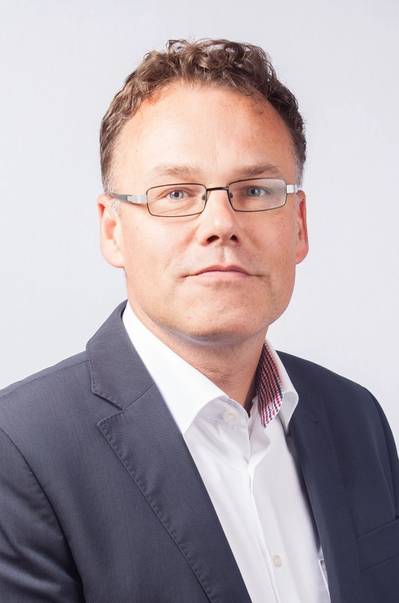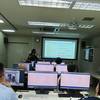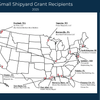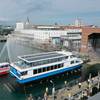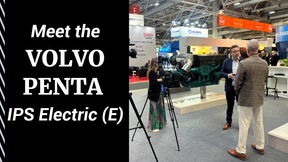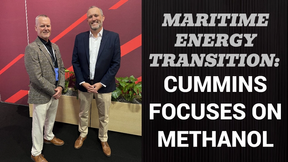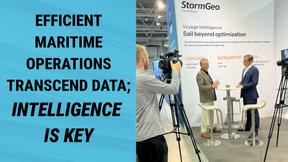Clearing the Air: Alfa Laval, NMRI Test Onboard CO2 Capture
As the marine industry moves toward decarbonization, partnerships that transcend technologies and borders will increasingly play a prominent role. In this regard, Alfa Laval and Japan’s National Maritime Research Institute (NMRI) today announced positive resultes on an innovative carbon capture and storage (CCS) test.
Initiated by NMRI, the CO2 capture testing project was designed to provide real-world validation of results achieved in the lab. It required a full-scale hybrid scrubber system, and Alfa Laval's PureSOx was used.. The Japanese shipowner associated with the research, who had installed PureSOx for SOx compliance on a newbuild, arranged with Alfa Laval and the shipyard to include the testing in the vessel’s sea trials.
“The positive results from our project with NMRI Japan show that scrubber technology could also play a role in removing carbon at sea,” said René Diks, Head of Exhaust Gas Cleaning Systems at Alfa Laval.
CCS is a potential bridge technology, offering the possibility to extract carbon from emissions until carbon-neutral fuels become more viable. In a full CCS solution, carbon removed from a vessel’s exhaust gas would be stored away to prevent it from ever entering the atmosphere. For this project, the scope was limited to showing that a scrubber could perform the CO2 capture on board. The modified PureSOx system was able to absorb CO2 from the auxiliary diesel engines in port, while operating in closed loop.
“Both short-term and long-term solutions will be needed to achieve IMO Greenhouse gas emission reduction targets,” said Diks. “Much development is needed before CCS can be deployed at sea, but this preliminary testing showed clear potential in the approach. Though designed to remove SOx, PureSOx demonstrated its ability to remove CO2 while operating in closed loop. Decarbonizing the marine industry will demand a wide range of emission-reducing technologies in addition to new fuels."
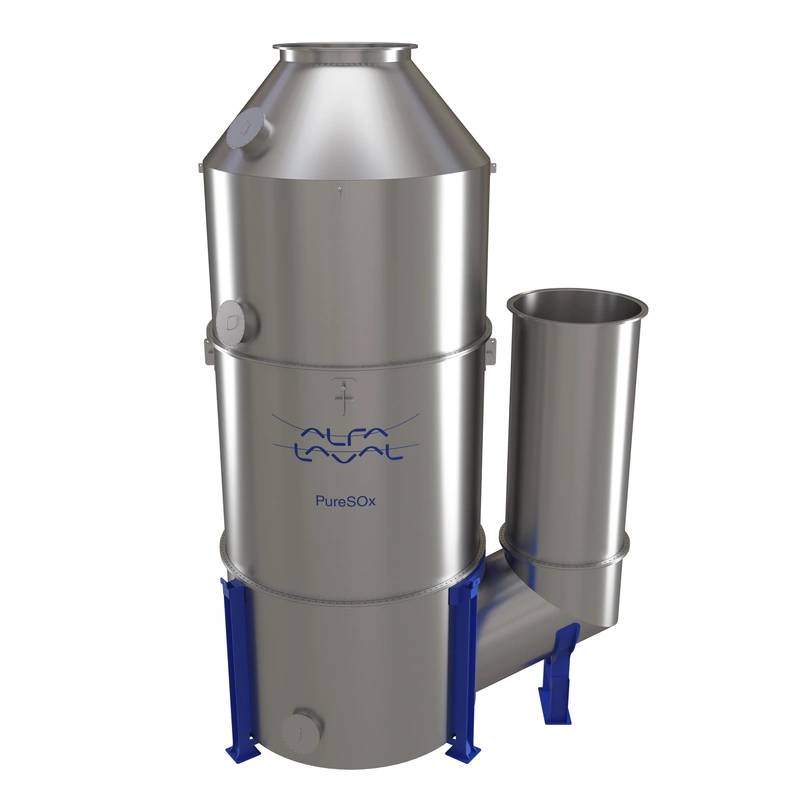 Alfa Laval PureSOx. Photo courtesy Alfa Laval
Alfa Laval PureSOx. Photo courtesy Alfa Laval



